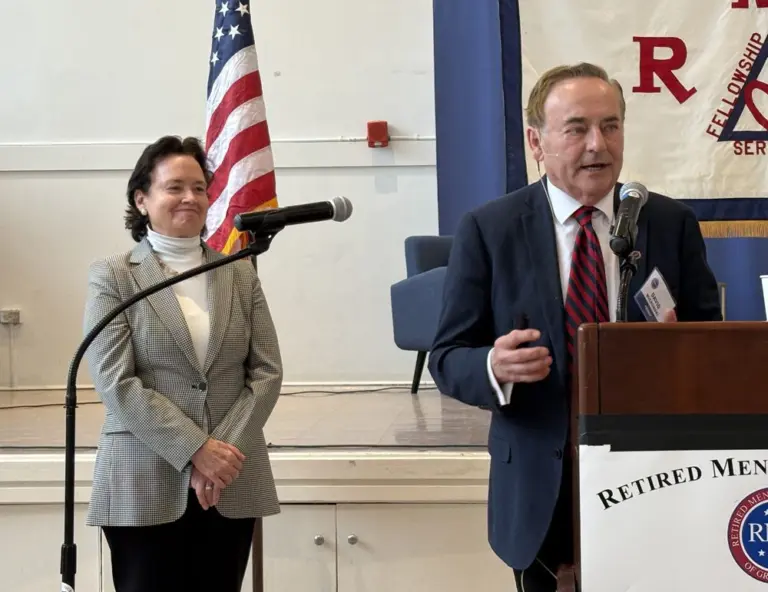By Anne White
In the waning hours of Connecticut’s 2025 legislative session, Senator Ryan Fazio (R-Greenwich) emerged as a key voice of dissent against a sweeping housing bill and as a leading architect of two bipartisan reforms poised to benefit Greenwich residents. The dual roles—defiant watchdog and pragmatic lawmaker—underscore the political crosscurrents reshaping state-local relations in Connecticut.
Central to Fazio’s critique is House Bill 5002, a 160-page omnibus measure that began as a homelessness bill and morphed, in Fazio’s words, into a “deeply flawed” top-down assault on municipal zoning powers. He is urging Governor Ned Lamont to veto the bill.
“This bill represents one of the most aggressive attacks on local control our state has seen,” Fazio said. “What began as a one-page bill on homelessness has transformed into a 160-page omnibus filled with top-down mandates that override the voices of our towns and cities.”
Of particular concern to Fazio is the “Fair Share” mandate, which he said would compel Greenwich and its neighboring towns to build thousands of housing units “regardless of local capacity or planning.”
Also included in the bill is “Work Live Ride”, which would enable as-of-right zoning for multi-unit housing near transit hubs. The law would also eliminate parking minimums for developments under 24 units effectively forcing towns to subsidize development parking and causing more congestion problems.
The backdrop to Fazio’s protest is not simply localist resistance—it is electoral math. The bill passed the Senate 20–15, with more Democrats voting ‘no’ than on any other successful bill this session. It followed a 2 a.m. Republican-led filibuster. The House approved it by a narrow margin.
While opposing H.B. 5002, Fazio secured a unanimous legislative victory with the passage of Senate Bill 1558, a bill he authored to challenge the cross-border taxation of Connecticut workers by states like New York. The bill creates a legal incentive—through a 60% tax credit—for residents to sue for refunds on income taxed while working from home in Connecticut, even if employed by out-of-state companies.
“For years, Connecticut residents…have been unconstitutionally forced to pay
high taxes to those other states on days that they work entirely from home in Connecticut,” said Fazio. “There is no legal rationale for one state taxing residents of another state for labor entirely performed within the other state.”
Greenwich’s stake is outsized. Tens of thousands of its residents commute to New York or work remotely for companies based there. Fazio argued that correcting the tax treatment could yield hundreds of millions in recovered revenue for the state, and thousands of dollars annually for individual Greenwich taxpayers.
In another area of bipartisan progress, Fazio celebrated Senate passage of S.B. 4, a compromise bill that delivers $200 million in statewide annual savings on electric bills. The bill cuts $100 million from public benefit charges and another $100 million from transmission costs—cost drivers that have long weighed on Greenwich ratepayers.
“We’ve heard from tens of thousands of families who are being crushed by these costs,” Fazio said. “We never stopped fighting for them. Today’s compromise marks one small step toward long-overdue relief.”
Republicans had pushed for deeper cuts, but Fazio called the agreement “a step in the right direction,” citing provisions to curb costly subsidies and promote transparency. Senate GOP Leader Stephen Harding echoed that the bill “does not go far enough,” but credited Fazio’s persistence for forcing a bipartisan reckoning with the state’s high energy burden.
Lamont is expected to sign S.B. 1558 and S.B. 4. But H.B. 5002 hangs in the balance.
“I urge the governor to veto H.B. 5002,” Fazio said. “Let’s go back to the drawing board… without gutting local control.”



